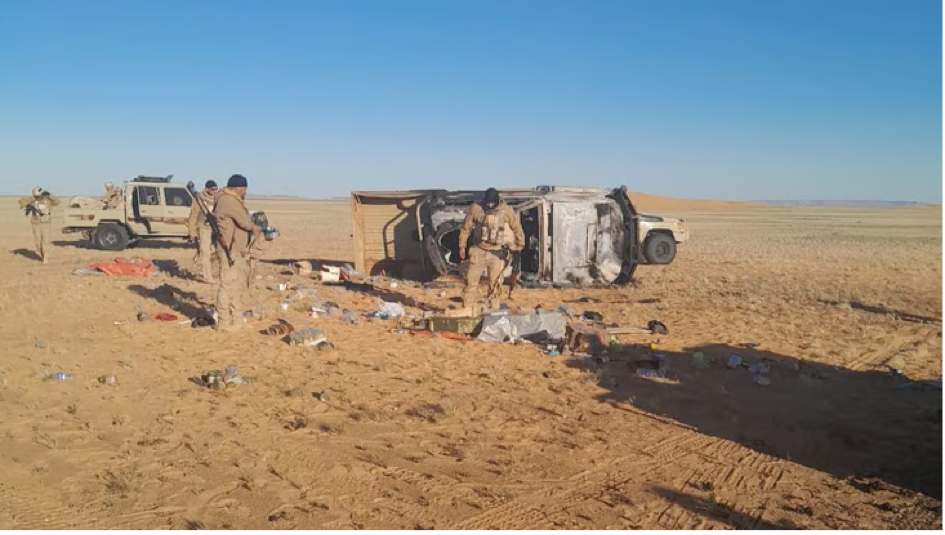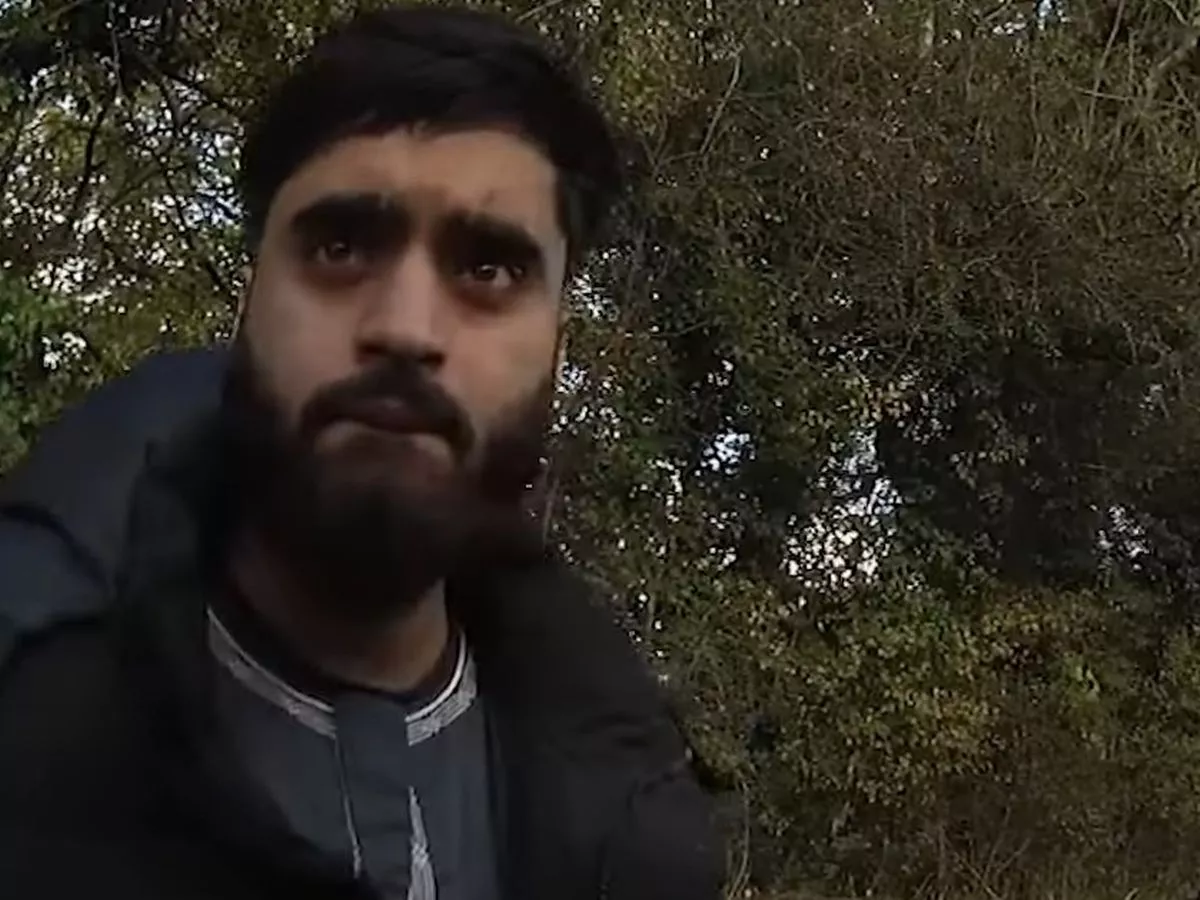By Abubacarr
Copyright standard

By Sheriff Bojang Jr
By accusing the UAE of bankrolling atrocities through Colombian fighters, Sudan has recast its conflict as a transcontinental proxy war with consequences for Gulf power struggles, Red Sea security and the fragile Sahel.Sudan’s war has already scarred the nation, but its government run by Prime Minister Kamil Idris, put in place by Sudan’s army chief Abdel Fattah al-Burhan, now says the real architect lie far beyond its borders.In a letter to the United Nations Security Council, Khartoum accused the United Arab Emirates of recruiting and deploying Colombian mercenaries to fight alongside the Rapid Support Forces (RSF), the militia blamed for mass atrocities in Darfur.The allegation, if proven, would recast the conflict from a domestic struggle for power into a proxy war stretching across three continents. It would also raise a question about whether foreign powers can fuel Africa’s wars with impunity.
Mercenaries for hireOn 5 September, Sudan lodged a formal complaint with the UN Security Council, alleging direct Emirati intervention in its war.The six-page letter from Khartoum’s Permanent Representative, Al-Harith Idriss al-Harith, was circulated by South Korea’s ambassador, the council president for September, and came with 13 annexes of purported evidence.The envoy presented what he called “alarming and well-documented evidence” of Abu Dhabi’s role in prolonging the conflict, calling it a “grave violation of Sudan’s sovereignty” and a “direct threat to regional peace and security”.The UAE has consistently denied supplying military support to any warring faction.According to Sudan’s submission, between 350 and 380 Colombian ex-soldiers were recruited by Emirati-based private security firms, including Global Security Services Group, chaired by Emirati businessman Mohammed Hamdan Al-Zaabi, and the International Services Agency, co-founded by retired Colombian colonel Álvaro Quijano.The document claims that after recruitment, the fighters were flown to Somalia, then to Benghazi in Libya under the protection of General Khalifa Haftar, and finally moved by land through Chad into Darfur.Sudan says at least 248 UAE-chartered flights between November 2024 and February 2025 ferried men, weapons and equipment into the country, more than 15,000 flight hours in total.Grouped under the banner of the “Desert Wolves”, the mercenaries are accused of playing a direct combat role, including operating drones and artillery, spearheading assaults on Sudanese Armed Forces (SAF) positions, and even training children to fight.Khartoum says seized Spanish-language documents authorised the use of white phosphorus, while other materials included weapons request lists, Starlink devices and maps of SAF positions.
Alleged crimesThe dossier accuses UAE-backed mercenaries of war crimes, including the killing of 73 civilians in El Fasher earlier this year and the recruitment of children as young as 10.Sudan also alleges Emirati aircraft smuggled gold, gum Arabic and livestock, tying the war to systematic looting.Such claims cut sharply against the UAE’s long-cultivated image as a stabiliser in Africa. By calling Abu Dhabi the “diabolical architect” of its war, Khartoum is challenging one of the Gulf’s most influential actors.Hisham Madani, a political analyst and founder of the Sudanese Civil Movement, says Sudan has already sought to expose Emirati complicity at the International Court of Justice.Although the ICJ declined the case due to Abu Dhabi’s reservation on the genocide clause, he argues that Khartoum still forced the UAE into the dock of international opinion.“Moreover, Sudan’s latest complaint to the UN Security Council, backed by evidence on the mercenary pipeline, has further tarnished the Gulf state’s image,” he tells The Africa Report.UAE respondsThe UAE’s Ministry of Foreign Affairs rejected Sudan’s complaint, calling it baseless and politically motivated.““It is notable that the Port Sudan Authority circulated this letter through their usual social media and disinformation networks solely for publicity prior to formal UN publication, clearly intended to manipulate public perception and bypass proper process,” the ministry told The Africa Report.It said Khartoum’s dossier was just “one of many fabricated letters” that had already been discredited with evidence, and accused Sudan of relying on “distortions and fabricated videos with no verified link to the UAE.”The ministry urged Khartoum to stop “misusing international platforms” such as the UN Security Council and the ICJ, and instead focus on “ending its role in harming and killing the Sudanese people during this devastating civil war.”Colombia’s entanglementThe Colombian connection gives Sudan’s dossier a global reach.With one of the world’s largest pools of trained veterans, many hardened by decades of internal conflict, Colombia has long been a fertile recruitment ground for private military companies.Thousands of former soldiers have taken overseas contracts in the Gulf, Central America and elsewhere, often driven by limited economic opportunities at home.Sudan alleges that many of these men were enticed with promises of lucrative security jobs in the Emirates or other Gulf states, only to find themselves redeployed to Darfur’s frontlines.For Khartoum, this bait-and-switch illustrates not only the exploitation of Colombia’s veterans but also the hidden infrastructure that allows a war in Africa to draw on manpower from Latin America.In Bogotá, the allegations have struck a raw nerve. Media outlets have investigated the trafficking of veterans and highlighted the opaque role of recruitment agencies.Families of those killed or missing have demanded answers, with several widows and relatives going public about how their loved ones left for supposed “security contracts” only to vanish into Sudan’s war.President Gustavo Petro confirmed that at least 40 Colombians have died there, condemning the practice and urging veterans not to “sell themselves for money” in foreign conflicts.He framed the deaths as not only a human tragedy but also a stain on Colombia’s global reputation.
What Khartoum wantsSudan is pressing the Security Council to launch a full investigation into mercenary trafficking, designate the RSF as a terrorist militia, and issue a formal condemnation of the UAE for war crimes.Khartoum insists that without such measures, the RSF will continue to act with impunity while its foreign sponsors extract Sudan’s resources under the cover of war.But diplomats see little prospect of binding action. The UAE’s entrenched ties to Washington, Moscow, Paris and London – anchored in trade, energy and security cooperation – make any resolution highly unlikely.In New York, the expectation is that the council will stall, with major powers reluctant to confront Abu Dhabi over Sudan.Madani concedes that an RSF terrorist designation is unlikely for the same reason, but insists the strategy still matters: “Even without enforcement, the effort to expose Abu Dhabi’s interference inflicts reputational damage, which is why we see a continuous Emirati push to muddy the waters and deflect from evidence-backed Sudanese claims.”
Regional falloutIf Sudan’s accusations hold, the consequences will ripple across the region.In the Gulf, analysts say Saudi Arabia may seize the chance to cast itself as the responsible mediator through the Jeddah process, while Egypt, wary of an RSF-dominated western frontier, is likely to deepen its support for the Sudanese army.Türkiye and Qatar – long-time rivals of the UAE – could also see an opening to reassert their influence in the Horn of Africa.The Red Sea is another flashpoint. “The waterway has already become a magnet for Gulf competition, and Sudan’s charges only intensify the scramble for strategic nodes from Port Sudan to Eritrea,” regional risk analyst Samir Ahmad tells The Africa Report.“The contest over who controls these access points now carries added urgency, raising the risk of further militarisation of one of the world’s most vital maritime corridors.”The fallout could destabilise the Sahel as well. Ahmad warns that a mercenary pipeline from Colombia risks normalising the use of foreign fighters in African wars, lowering the cost of violence and prolonging conflicts in fragile states such as Chad and the Central African Republic.Perhaps most vulnerable, however, is the UAE’s carefully cultivated reputation.For years, Abu Dhabi has marketed itself as a humanitarian donor and investor in Africa.Allegations of child soldier training, the use of banned munitions and systematic looting cut directly against that image.“Even if the UN Security Council does not act, the reputational damage could reverberate through African capitals, international aid forums and financial markets, undermining the soft power the Emirates has worked so hard to build,” Ahmad says.



